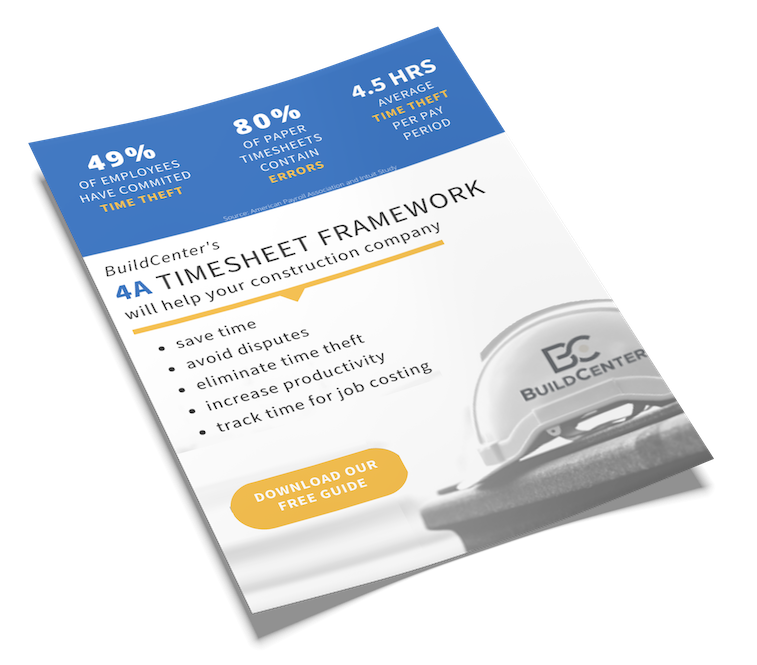Let’s face it, there are good projects and there are projects where you ask yourself “why did I take this job?”.
In construction, we learn from each project and one of the most important things to learn is “What is our ideal construction project (ICP)?”
You may already know this answer but in case you don’t, we’ll dive into how to answer this question and why it’s so important to your business.
Without knowing the answer, you may find yourself doing projects for terrible clients in terrible locations making terrible profits.
As a co-owner of a construction company, it took some work to answer this question but once we did, it was a game changer and our business has thrived ever since.
In this blog post, I’ll share what I have learned about the importance of knowing your ICP and how you can use it to boost your business.
What is ICP?
The Ideal Construction Project (ICP) is a profile of the projects that your business will be most successful at. When you think back on past projects, are there some that stand out as great projects that just seemed to fit perfectly? Are there some that were terrible and you felt out of your element? Once you define your ICP, you will have clarity on which projects to go after and which ones to avoid.
Let’s face it, just because we know a trade doesn’t mean we are best suited to do every type of project. If you are a great home painting contractor, you may want to stay away from painting bridges or tall commercial buildings. You simply may not be set up for it and the learning curve can be painful.
How to define your ICP?
Knowing what type of projects are best for your business is very important. There are many questions that you can ask that will lead you to the right answer. Here is a sample of questions:
- What is your company great at doing? (eg Service work, Commercial, Residential)
Do you have specialized knowledge? Are you good at fast track projects?
- What size projects are best for your company? (eg. between $____ and $_____)
- What is the best duration of the best projects?
- What is the ideal geographic location of your projects? (eg. within 50 miles of office)
- What type of projects are the most rewarding in both profit and accomplishment?
- What projects have been difficult and why? Are there any common reasons? (For example, we are not good at doing projects in the big city. We are not setup for it and our employees hate it. Now we avoid all projects in that area).
My best projects are ones that have the following characteristics:
Ideal Location: ______________________________________________
Ideal Type of work: ______________________________________________
Ideal Size of project: ______________________________________________
Ideal Type of client: ______________________________________________
Ideal Duration of project: ______________________________________________
Here are some examples of an ICP profile defined:
For a technical GC in Silicon Valley: Our ideal construction projects (ICP) are technically challenging projects for sophisticated clients that are within 60 miles of our office over $500k in size and take three to six months to complete.
For a commercial flooring sub: Our ideal construction projects (ICP) are commercial flooring for GC’s doing medium to large tenant improvement projects anywhere in Northern California.
For a residential home improvement GC: Our ideal projects are decks and patios where we can get in and out within four weeks and move on to the next project. For us, these projects are high profit and we are really good at them.
Once you have a better understanding of your ICP you can use it to go after more projects that fit the ICP Profile. In addition, you can start to say NO to projects that are clearly not part of your ICP Profile. The level of focus you will gain by zeroing in on the ICP will help your business thrive and grow and do more of what it’s great at and less of what it’s not.
The ICP Desirability Score
Now that you have your ICP clearly defined, it’s time to use it to create a desirability score for each new opportunity that comes your way. We use this at our company and it’s amazing how much time it saves us by quickly knowing if we should go after a job or pass on it.
Here is how it works. After reviewing a new project opportunity at the bidding stage as yourself on a scale of 1-10 how well this project fits your ICP. You can build your scorecard to fit your unique situation but here is an example of how we generate our score:
Client (how good does this client seem to be?) 1-10 _______
Funding (how likely is there going to be payment issues?) 1-10 _______
Location (is it within our territory?) 1-10 _______
Logistics (how is parking and accessibility?) 1-10 _______
Project Type (does it fit our ICP?) 1-10 _______
Total _______
Divide by 5 for Score _______
Once we score the project, we decide how to proceed. This saves us time spent on projects that we really don’t want. For our company, we focus on projects that score 5 or higher and we give less time to other opportunities.
Summary
In construction, it’s easy to get pulled into different projects and find out that it was a mistake. Knowing what your ideal construction project looks like allows you to identify them quickly with a desirability score and go after those projects. It also frees you from the bad fit projects that can bog us down and cause unnecessary stress on everyone involved.
Contact us for your Free ICP Worksheet & Scorecard to start the process of learning how to zero in on your ICP.
Resources
- Try BuildCenter for free to see how you can track workers time and automatically apply to jobs




